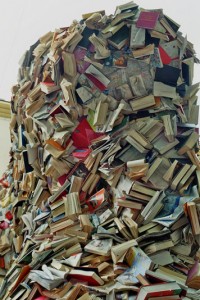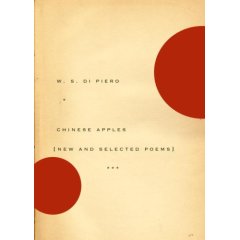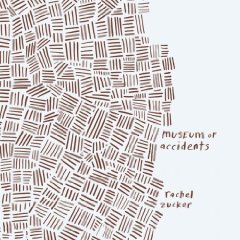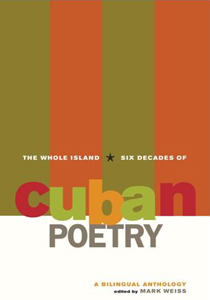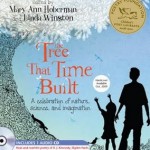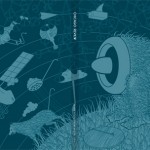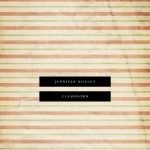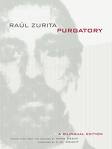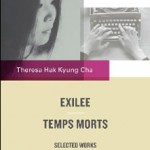The Best Poetry of the Year
The best books of the last year of the decade, as picked by the staff of Poetry magazine and poetryfoundation.org:
Chinese Apples, New and Selected Poems
W. S. Di Piero
Knopf
City Dog: Essays
W. S. Di Piero
Northwestern University Press
Christian Wiman, Editor, Poetry Magazine:
Di Piero, both as a poet and a prose writer, is one of the most idiosyncratic, intelligent, original, and criminally neglected writers alive. Though he’s not a believer, his work has a kind of religious residue, and seems lit from within by an anxious, almost sacred attentiveness.
*
Museum of Accidents
Rachel Zucker
Wave Books
Catherine Halley, Editor, poetryfoundation.org:
Dozens of terrific poetry books landed on my desk this year, but Rachel Zucker’s “Museum of Accidents” stood out because (and pardon the over-sharing) I’m not married and I’m not a mother, and this big square paperback, which concerns itself with the underbelly of both marriage and motherhood, made me feel okay about that even as it indulged my curiosity about such things. Don’t get me wrong—it isn't simply a spinsters' schadenfreude that draws me to this confessional book. I love how varied the poems are. Each one takes a different shape, ranging across the page in a way that would make Robert Duncan proud. The book is by turns funny: one poem’s called “Nice Arse Poetica”, and dead serious: “Long Lines to Stave Off Suicide” begins, “or/ I could keep having children which helps a little (hurts/ a lot) because everything for a long time is so/keep-the-baby-alive...” Here is a book about crisis and the ho-hum space between crises that we call ordinary life. The poems often begin mid-sentence, reflecting the moments when the poet remembers she is alive and not so well.
*
The Whole Island: Six Decades of Cuban Poetry
Edited by Mark Weiss
University of California Press
Don Share, Senior Editor, Poetry Magazine:
A whole island of poetry, indeed: reading this book, you discover a new world of poetry. What could be more exciting than that?
*
The Tree That Time Built
Mary Ann Hoberman, Linda Winston, and Barbara Fortin (Illustrator)
Sourcebooks, Naperville, Illinois
Penny Barr, Project Manager, Children's Poetry:
An anthology of poems touching on nature, science and the imagination. A beautifully printed book, with CD of poets reading their own work. Very colorful and for the whole family. This is a joint-venture of between science and poetry for children.
*
“Mental Ears”
JH Prynne
Chicago Review 55:1
Michael Marcinkowski, Web Project Manager, poetryfoundation.org:
So maybe issue 55:1 of the Chicago Review isn't a book, but JH Prynne's lecture "Mental Ears" is so good that you should buy the issue, tear out all 30 pages of the essay, staple them together, and make it into a little book of your very own. (Chucking the rest of the issue into the waste bin or not is your own prerogative.) What makes the essay (alright I know: lecture) so great is that it not only gives the reader a bit of insight into the fantastical workings of Prynne's own distinctive versifications, but also provides a startlingly distinct formulation of the mechanics of poetry at large, one that digs deeper and in different directions than normal semantic or metrical considerations. The ideas are so well wrought that even the discussion of Wordsworth's old-as-drawers "Tintern Abbey" seems alive and fresh as a daisy. Did I mention the startling nuanced application of Indo-European derivations? Yeah. It’s that good.
*
Clampdown
Jennifer Moxley
Flood Editions
Travis Nichols, Associate Editor, poetryfoundation.org:
Moxley’s fifth book of poems finds her lyic “I” speaking for the group: the complicit and the defiant, the lovely and the melancholy. A zeitgeist-y companion to Julianna Spahr’s This Connection of Everyone with Lungs. (For prose by poets, I choose the shot of textual courage that is Eileen Myles’ The Importance of Being Iceland).
*
The Book of Men and Women
David Biespiel
University of Washington Press
Gina Rosemellia, Editorial Assistant, Poetry Magazine:
In his book about regret, longing, and loss, Biespiel explores the intricacies of relationships between men and women in settings both real and imaginary.
*
Purgatory
Raúl Zurita (translated by Anna Deeny)
University of California Press
Michael Slosek, Permissions Coordinator, poetryfoundation.org:
Zurita is seen by many to be the most important poet in Chile and the inheritor of Neruda’s legacy. His work has been widely neglected in the US. Purgatory was Zurita’s first book of poetry, and the work tries to take account of the atrocities committed by the Pinochet regime against the Chilean people, culture, and Spanish language. Zurita speaks through a variety of subjectivities: a woman, a cow, a man tortured the regime (which Zurita actually was), in a fractured and wounded language. I think it’s an important book to be published in the US at this time, since we’re coming out of our own 8 years of atrocities that many would like to simply forget.
*
Fred Sasaki, Associate Editor, Poetry Magazine:
Exilée and Temps Morts: Selected Works
Theresa Hak Kyung Cha
University of California Press
"Dear Collegue,
It’s amusing. But serious. You make decisions everyday; large and small. Decisions that could and often do affect your profession, your life-style, where you live and even with whom you live. They are important and necessary decisions that could have a far-reaching impact on your life not just today but in your future as well.
Far too often in today’s quick-changing, fast-paced world, new events and trends come along that can catch us off-guard and lead us into the dim world of 'future shock,' the disorientation that occurs when the world changes faster than we can rearrange our thinking patterns, attitudes, and values.
It doesn’t have to be that way."



